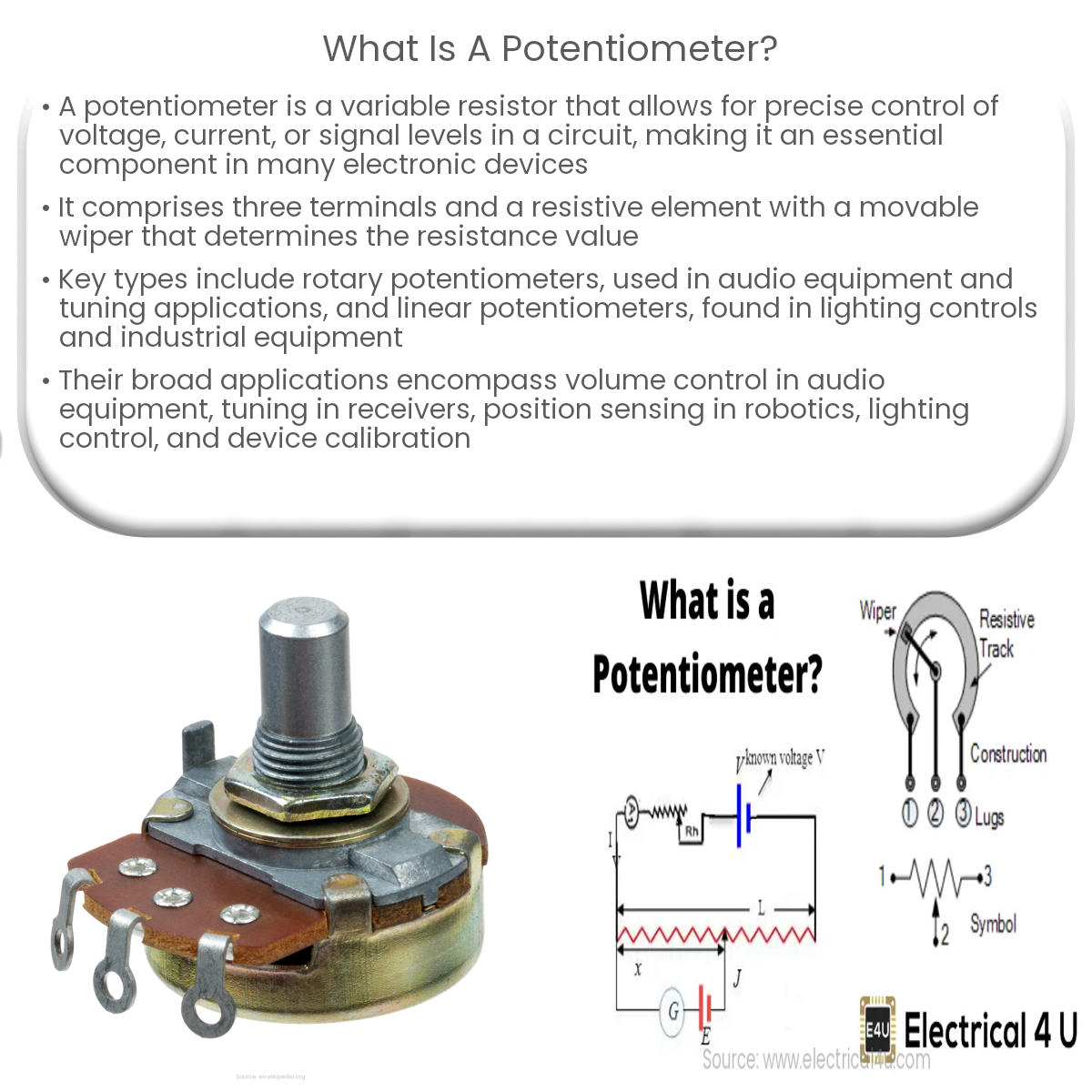A potentiometer is a variable resistor that allows precise control of voltage, current, or signal levels in a circuit, commonly used for tuning and volume.
What is a Potentiometer?
A potentiometer is a type of variable resistor that allows for the adjustment of resistance in a circuit, enabling precise control of voltage, current, or signal levels. With its versatile applications, potentiometers are widely used in electronic devices for tuning, calibration, and volume control.
Construction and Working Principle
A potentiometer consists of three terminals and a resistive element, typically a carbon or metal film, which forms a continuous path between the fixed terminals. A movable wiper, or slider, is placed along the resistive element, and its position determines the resistance value between the wiper and the fixed terminals.
As the wiper moves along the resistive element, the resistance between the wiper and one terminal increases, while the resistance between the wiper and the other terminal decreases. This change in resistance allows for the control of voltage, current, or signal levels in a circuit.
Types of Potentiometers
There are various types of potentiometers based on their design, including:
- Rotary Potentiometers: These have a circular resistive element and a rotating wiper, usually controlled by turning a knob. Rotary potentiometers are commonly used in audio equipment for volume control and in various tuning applications.
- Linear Potentiometers: These have a linear resistive element with a slider-type wiper. The wiper moves along the resistive element in a straight line, usually controlled by a sliding lever or knob. Linear potentiometers are often found in lighting controls and industrial equipment.
Applications
Potentiometers are used in a wide range of applications due to their ability to provide precise control over voltage, current, or signal levels. Some common applications include:
- Volume control in audio equipment
- Tuning in radio and television receivers
- Position sensing in robotics and automation systems
- Lighting control and dimmer switches
- Calibration of electronic devices
Conclusion
A potentiometer is a versatile and essential component in many electronic devices and systems. As a variable resistor, it provides precise control over voltage, current, or signal levels in a circuit, making it suitable for a wide range of applications, including tuning, calibration, and volume control. Understanding the construction, working principle, and applications of potentiometers is crucial for engineers, hobbyists, and technicians working with electronic systems.


